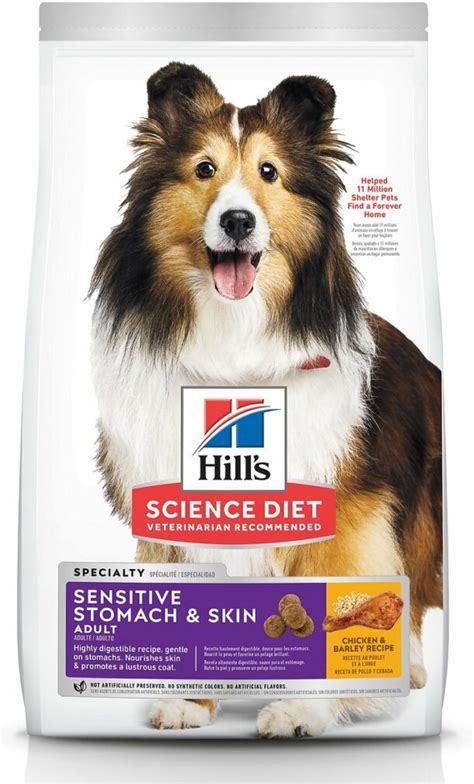Introduction
Every dog owner wants their furry friend to have a healthy, shiny coat. After all, a dog’s coat is more than just a fashion statement; it’s a reflection of their overall health. The right nutrition plays a crucial role in maintaining a healthy coat, providing the essential nutrients that support skin and hair growth. However, navigating the world of dog nutrition can be overwhelming, with countless products and conflicting information available. This comprehensive guide will delve into the intricate relationship between dog nutrition and coat health, empowering you with the knowledge to make informed choices for your beloved companion.

The Importance of a Healthy Coat
A healthy coat is not merely an aesthetic attribute; it serves several vital functions that contribute to your dog’s well-being:
- Protection: The coat acts as a protective barrier, shielding your dog from environmental elements such as extreme temperatures, UV rays, and insect bites.
- Insulation: A thick, dense coat provides insulation, helping your dog regulate their body temperature in both hot and cold environments.
- Lubrication: Natural oils produced by the skin and hair follicles help lubricate the coat, preventing it from becoming dry and brittle.
- Communication: Dogs use their coats to communicate with other dogs and humans. For example, a raised hackles can indicate aggression or fear.
Understanding Dog Nutrition
Your dog’s diet is the foundation of their overall health, including the health of their coat. A balanced diet should provide the following essential nutrients:
Protein
Protein is essential for building and repairing tissues, including skin and hair. Aim for a diet containing 22-32% protein for adult dogs and 25-35% for puppies. High-quality protein sources include:
– Lean meats (chicken, beef, fish)
– Eggs
– Dairy products (in moderation)
Fats
Fats provide energy and support the absorption of fat-soluble vitamins. They also contribute to the production of natural oils that lubricate the coat. Include 10-15% fat in your dog’s diet, focusing on healthy fats from:
– Fish oil
– Chicken fat
– Vegetable oils (canola, olive, coconut)
Carbohydrates
Carbohydrates provide energy and fiber. Choose complex carbohydrates from sources such as:
– Whole grains (brown rice, oats)
– Fruits
– Vegetables
Vitamins and Minerals
Certain vitamins and minerals are essential for coat health. These include:
- Vitamin A: Supports skin and hair growth
- Vitamin E: An antioxidant that protects against free radical damage
- Vitamin B complex: Supports metabolism and skin health
- Zinc: Essential for healthy skin and hair growth
- Omega-3 and Omega-6 fatty acids: Essential fatty acids that support skin and coat health
Common Coat Problems and Nutritional Deficiencies
Various coat problems can arise due to nutritional deficiencies. Recognizing these issues and addressing them through proper nutrition is crucial:
| Coat Problem | Possible Nutritional Deficiency |
|---|---|
| Dry, brittle hair | Lack of essential fatty acids |
| Dull, lackluster coat | Lack of protein, vitamins A and E, or zinc |
| Excessive shedding | Lack of protein, zinc, or omega-3 and omega-6 fatty acids |
| Skin infections | Lack of vitamin A or zinc |
| Hair loss | Lack of protein, biotin, or zinc |
Choosing the Right Food
Selecting the right food for your dog is paramount for maintaining a healthy coat. Consider these factors:
- Age: Puppies, adult dogs, and senior dogs have different nutritional requirements.
- Activity level: Active dogs require more calories and nutrients than sedentary dogs.
- Breed: Some breeds, such as Siberian Huskies and Golden Retrievers, have specific dietary needs.
- Health conditions: Dogs with skin allergies or other health conditions may require specialized diets.
Consult with your veterinarian to determine the best food for your dog’s individual needs.
Additional Tips for a Healthy Coat
In addition to a balanced diet, follow these tips for a healthy, lustrous coat:
- Regular brushing: Regular brushing removes dead hair, distributes natural oils, and prevents tangles.
- Bathing: Bathe your dog every 2-4 weeks with a mild shampoo specifically designed for dogs. Avoid over-bathing, as it can strip the coat of its natural oils.
- Supplements: If your dog’s diet is lacking in certain nutrients, consider consulting with your veterinarian about nutritional supplements.
- Avoid toxins: Keep your dog away from toxins, such as flea and tick treatments that are not specifically designed for dogs, which can damage their coat.
Conclusion
Dog nutrition plays a pivotal role in maintaining a healthy, radiant coat. By providing your furry friend with a balanced diet rich in essential nutrients, you can support their overall well-being and ensure they always look and feel their best. Remember to consult with your veterinarian regularly to discuss your dog’s individual dietary needs and address any concerns. With the right nutrition and care, your dog’s coat will shine brightly for years to come.





















